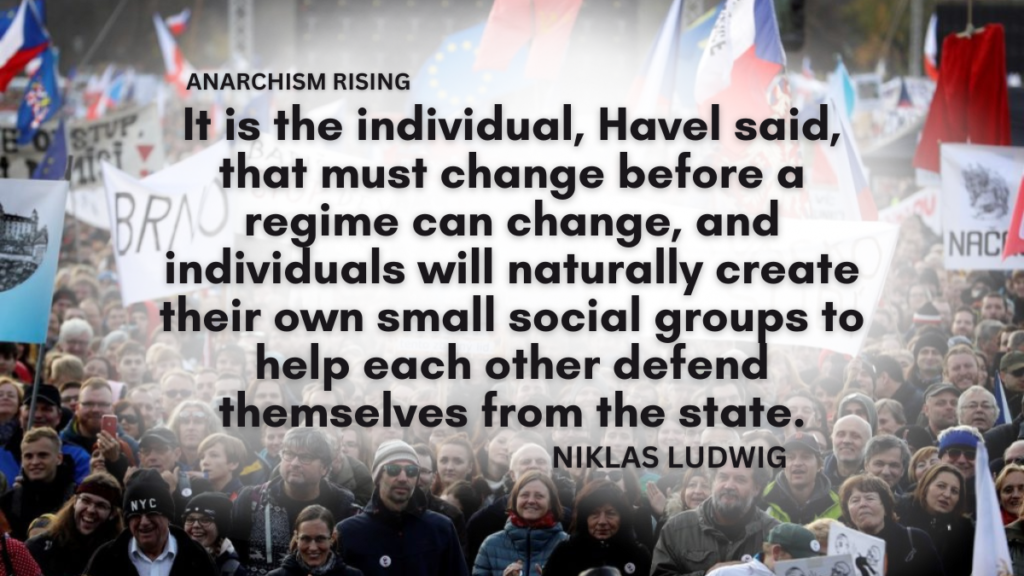
In 1978, Vaclav Havel wrote a critical essay about the communist regime that was controlling Czechoslovakia and eastern Europe since the end of World War II. Although the essay was officially censored and Havel was imprisoned for several years, it was one of the most influential dissident writings in Europe and Asia and was circulated throughout the communist world.
Havel is dead and his ideas are mostly forgotten – but during the late 1970’s and 1980’s his thoughts about the nature of the state, democracy, and what people can do to live more free in totalitarian countries inspired millions of people, and helped spark the events that led to the collapse of communism in Europe in 1989.
This essay, The Power of the Powerless, has many lessons for those of us who live in what Havel called “post totalitarian” states, which he said were countries that had supposed democratic institutions and respected individual rights, but were in reality police states. Havel said the primary way these states stay in power is not by outward violence – although they resort to violence regularly as a means of controlling their citizens – but by an overriding ideology, a religion of the state, that most people, by their submission and/or acceptance of the ideology, keep the state in power. Havel said that this means that most people “live a lie”, and prefer to acquiesce and even promote the lie so they can live a somewhat normal life.
But Havel wrote that submission to the state ideology is precisely what should not be done. If people “live in truth” and refuse to accept the slogans and rituals of the state ideology, they have the chance to create other cultures that will act as counters to the prevailing state ideology.
Havel did not think that political action would do any good (and the history of the downfall of communism in Europe shows that, for the most part, it was non-political individuals and groups that were at the forefront of the collapse). It is the individual, he said, that must change before a regime can change, and individuals will naturally create their own small social groups to help each other defend themselves from the state.
Unfortunately post-communist Europe is moving steadily back towards totalitarianism, but for a brief time Havel was President of the the first non-communist government in Czechoslovakia, and helped oversee a peaceful split of the country into the Czech Republic and Slovakia. Too bad they didn’t keep splitting up.
